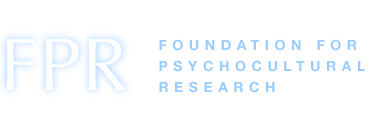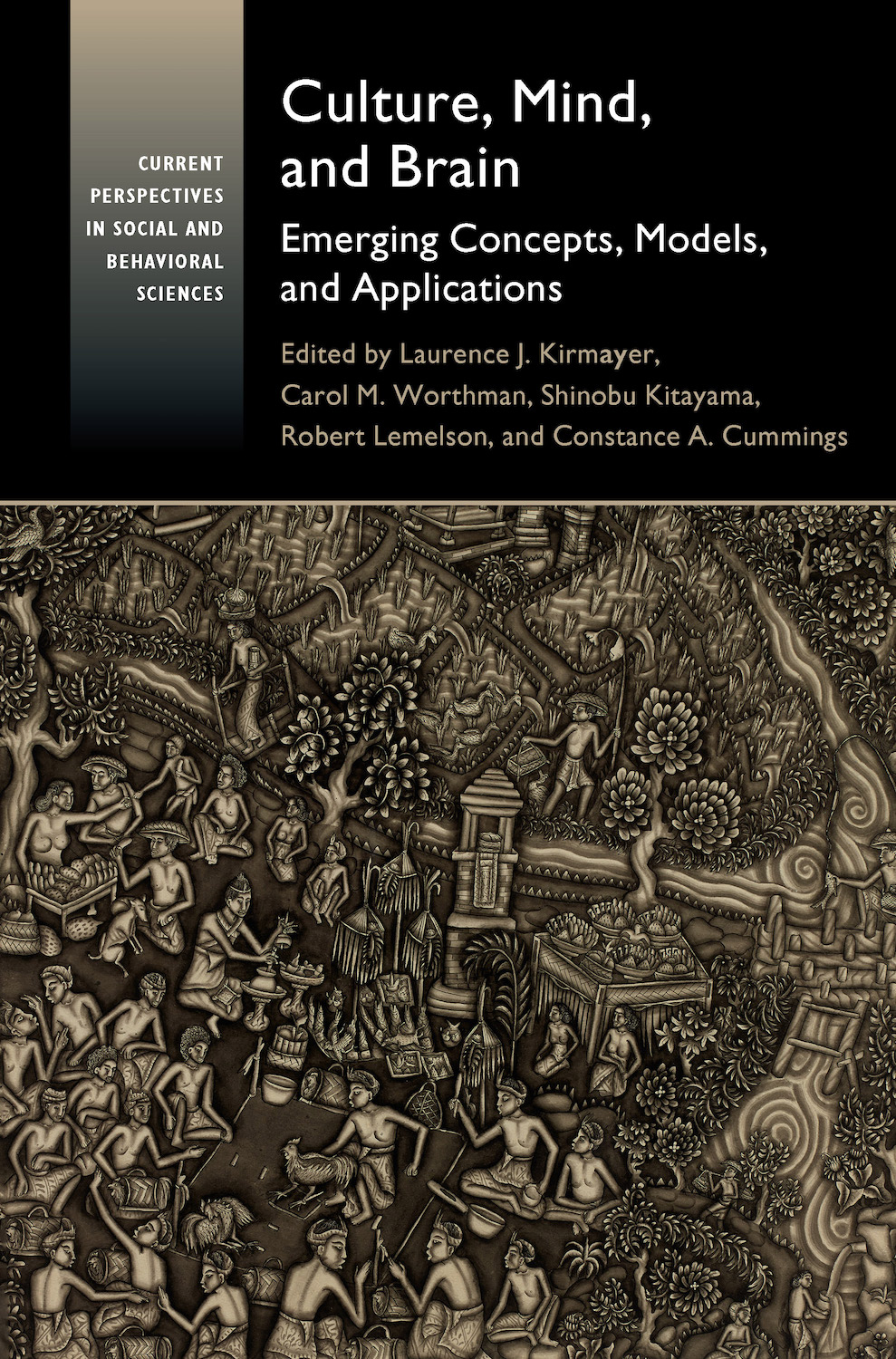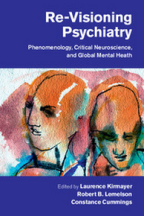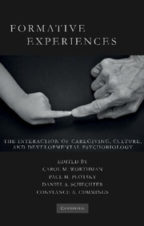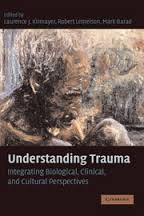All PUBLICATIONS
Published in 2020 by Cambridge University Press (link to CUP details)
Edited by (in alphabetical order):
Constance A. Cummings
Foundation for Psychocultural Research
Laurence J. Kirmayer
McGill University, Montréal
Shinobu Kitayama
University of Michigan
Robert Lemelson
University of California, Los Angeles
University of Southern California
Foundation for Psychocultural Research
Carol M. Worthman
Emory University
Description
Human beings are biological and cultural beings – we live our lives in and through socially constructed worlds that vary widely in their architecture, social order, values, and aspirations, which reflect different histories and visions of the future. This volume is for general and academic audiences interested in acquiring a deeper and more textured understanding of who we are and who we are becoming, one that takes into account not only our biology but our immense cultural diversity, which shapes our experiences, psychologies, and imagination.
Table of Contents
- Introduction: Co-Constructing Culture, Mind, and Brain
Laurence J. Kirmayer, Carol M. Worthman, and Shinobu Kitayama
PART ONE: DYNAMICS OF CULTURE, MIND, AND BRAIN: MODELS AND EVIDENCE
Section One: The Co-Emergence of Culture, Mind, and Brain
Introduction
- Culture, Mind, and Brain in Human Evolution: An Extended Evolutionary Perspective on Paleolithic Toolmaking as Embodied Practice
Dietrich Stout
- Mutual Constitution of Culture and the Mind: Insights from Cultural Neuroscience
Shinobu Kitayama and Qinggang Yu
- Being There: Foundations, Theory, Method
Carol M. Worthman
Section Two: The Situated Brain
Introduction
- Culture in Mind—An Enactivist Account: Not Cognitive Penetration But Cultural Permeation
Daniel D. Hutto, Shaun Gallagher, Jesús Ilundáin-Agurruza, and Inês Hipólito
- The Brain as a Cultural Artifact: Concepts, Actions, and Experiences Within the Human Affective Niche
Maria Gendron, Batja Mesquita, and Lisa Feldman Barrett
- Cultural Priming Effects on the Human Brain
Shihui Han and Georg Northoff
- Culture, Self, and Agency: An Ecosocial View
Laurence J. Kirmayer, Ana Gómez-Carrillo, Timothé Langlois-Thérien, Maxwell J. D. Ramstead, and Ian Gold
Section Three: How Social Coordination is Achieved
Introduction
- Neuroanthropological Perspectives on Culture, Mind, and Brain
Daniel H. Lende and Gregory Downey
- The Neural Mechanisms Underlying Social Norms: Norm Detection, Punishment, and Compliance
Yan Mu and Michele J. Gelfand
- Ritual and Religion as Social Technologies of Cooperation
Christopher Kavanagh, Jonathan Jong, and Harvey Whitehouse
PART TWO: APPLICATIONS
Introduction
- The Cultural Brain as Historical Artifact
Rob Boddice
- Experience-Dependent Plasticity in the Hippocampus
Gregory L. West and Véronique Bohbot
- Liminal Brains in Uncertain Futures: Critical Neuroscience and the Cultural Contexts of Neuroeducation
Suparna Choudhury and Joshua Berson
- The Reward of Musical Emotions and Expectations
Benjamin P. Gold and Robert J. Zatorre
- Literary Analysis and Weak Theories
Omri Moses
- Capturing Context is Not Enough: The Embodied Impact of Story and Emotion in Ethnographic Film
Robert Lemelson and Annie Tucker
- Social Neuroscience in Global Mental Health: Case Study on Stigma Reduction in Nepal
Brandon Kohrt
- Cities, Psychosis, and Social Defeat
Firrhaana Sayanvala, Lisa Bornstein, Suparna Choudhury, Jai Shah, Daniel Weinstock, and Ian Gold
- Internet Sociality
Moriah Stendel, Maxwell J. D. Ramstead, and Samuel P. L. Veissière
- Neurodiversity as a Conceptual Lens and Topic of Cross-Cultural Study
Ariel Cascio
- Epilogue: nterdisciplinarity in the Study of Culture, Mind, and Brain
Laurence J. Kirmayer, Carol M. Worthman, and Shinobu Kitayama
Endorsements
‘This is an extraordinary collection written by leaders in psychological anthropology, social psychology, and ‘cultural neuroscience’. It presents state-of-the-art research dedicated to understanding the interaction of mind, brain, and culture.’ Melvin Konner, Samuel Candler Dobbs Professor of Anthropology, Emory University
‘The question of how culture and the brain interact to shape the mind is one of the great questions of our time. This thoughtful collection demonstrates that interdisciplinary collaboration is crucial to any good answer to such a question.’ Tanya Luhrmann, Howard H. and Jessie T. Watkins University Professor of Anthropology, Stanford University
‘At this scientific smorgasbord, you’ll whet your appetite on rich intellectual histories prepared by those who lived them. Then, feast on a heaping helping of the latest ideas about how minds, brains, and cultures co-constitute themselves. Finally, relax while taking in wide-ranging literature reviews on the latest findings in neuroscience, anthropology, psychology and other relevant fields.’ Joe Henrich, Chair of the Department of Human Evolutionary Biology, Harvard University
‘I was just getting used to the age of enactivism. It is now clear that attention to culture will bring the next paradigm shift. This book is a great foundational resource. It foreshadows the way we are going to think about ourselves in the next decade – gracefully spanning from dopamine receptors to the extended evolutionary synthesis, from connectomes to predictive processing. In short, all our favourite things are here – and are woven together beautifully.’ Karl Friston, FRS, University College London
Flyer with Discount
Edited by
Laurence J. Kirmayer
McGill University, Montréal
Robert Lemelson
University of California, Los Angeles
Foundation for Psychocultural Research
Constance A. Cummings
Foundation for Psychocultural Research
Description
Re-Visioning Psychiatry explores new theories and models from cultural psychiatry and psychology, philosophy, neuroscience, and anthropology that clarify how mental health problems emerge in specific contexts and points toward future integration of these perspectives. Taken together, the contributions point to the need for fundamental shifts in psychiatric theory and practice:
- restoring phenomenology to its rightful place in research and practice;
- advancing the social and cultural neuroscience of brain–person–environment systems over time and across social contexts;
- understanding how self-awareness, interpersonal interactions, and larger social processes give rise to vicious circles that constitute mental health problems;
- locating efforts to help and heal within the local and global social, economic, and political contexts that influence how we frame problems and imagine solutions.
In advancing ecosystemic models of mental disorders, contributors challenge reductionistic models and culture-bound perspectives and highlight possibilities for a more transdisciplinary, integrated approach to research, mental health policy, and clinical practice.
Table of Contents
Foreword by Arthur Kleinman
Preface
Abbreviations
1 Introduction
Laurence J. Kirmayer, Robert Lemelson, and Constance A. Cummings
Part One Restoring Phenomenology to Psychiatry
2 Toward a New Epistemology of Psychiatry
German E. Berrios and Ivana S. Marková
3 Phenomenology and the Interpretation of Psychopathological Experience
Josef Parnas and Shaun Gallagher
4 How the Self Is Altered in Psychiatric Disorders: A Neurophenomenal Approach
Georg Northoff
5 Cultural Phenomenology and Psychiatric Illness
Thomas J. Csordas
6 Empathy and Alterity in Psychiatry
Laurence J. Kirmayer
7 Reflections: The Community Life of Objects – Beyond the Academic Clinic
Nev Jones
Part Two Biosocial Mechanisms in Mental Health and Illness
8 Dimensional and Categorical Approaches to Mental Illness: Let Biology Decide
Robert M. Bilder
9 Early-Life Adversity and Epigenetic Changes: Implications for Understanding Suicide
Benoit Labonté, Adel Farah, and Gustavo Turecki
10 Understanding the Neural Circuitry of Emotion Regulation: White Matter Tract Abnormalities and Psychiatric Disorder
Cecile D. Ladouceur, Amelia Versace, and Mary L. Phillips
11 Paying Attention to a Field in Crisis: Psychiatry, Neuroscience, and Functional Systems of the Brain
Amir Raz and Ethan Macdonald
12 Reflections: Hearing Voices – How Social Context Shapes Psychiatric Symptoms
Tanya M. Luhrmann
Part Three Cultural Contexts of Psychopathology
13 Understanding the Social Etiology of Psychosis
Kwame McKenzie and Jai Shah
14 Toward a Cultural Neuroscience of Anxiety Disorders: The Multiplex Model
Devon E. Hinton and Naomi M. Simon
15 From the Brain Disease Model to Ecologies of Addiction
Eugene Raikhel
16 Cultural Clinical Psychology: From Cultural Scripts to Contextualized Treatments
Andrew G. Ryder and Yulia E. Chentsova-Dutton
17 Psychiatric Classification Beyond the DSM: An Interdisciplinary Approach
Roberto Lewis-Fernández and Neil Krishan Aggarwal
18 Reflections: The Virtues of Cultural Sameness – The Case of Delusion
Ian Gold
Part Four Psychiatric Practice in Global Context
19 Afflictions: Psychopathology and Recovery in Cultural Context
Robert Lemelson and Annie Tucker
20 Eating Pathology in Fiji: Phenomenologic Diversity, Visibility, and Vulnerability
Anne E. Becker and Jennifer J. Thomas
21 Solving Global Mental Health as a Delivery Problem: Toward a Critical Epistemology of the Solution
Kalman Applbaum
22 Global Mental Health Praxis: Perspectives from Cultural Psychiatry on Research and Intervention
Brandon A. Kohrt and James L. Griffith
23 Reflections: Social Inequalities and Mental Health Outcomes – Toward a New Architecture for Global Mental Health
Duncan Pedersen
24 Conclusion: Re-Visioning Psychiatry – Toward an Ecology of Mind in Health and Illness
Laurence J. Kirmayer
Index
Edited by:
Carol M. Worthman
Emory University
Paul M. Plotsky
Emory University
Daniel S. Schechter
Hôpitaux Universitaires de Genève
Constance A. Cummings
Foundation for Psychocultural Research
Description
This interdisciplinary book offers a unique exploration of the formative effects of children’s early life experiences, with an emphasis on interactions among neurodevelopmental, behavioral, and cultural dynamics. The authors draw on insights from psychobiological, clinical, and cross-cultural comparative research that maps the robustness of these developmental dynamics across species and societies. Multidisciplinary case studies focus on specific periods of development, or windows of susceptibility, during which caregiving and other cultural practices potentially have a long-lasting impact on brain and behavior. Chapters describe in detail: how social experience interacts with neurodevelopmental disorders; how epigenetic mechanisms mediate the effects of early environment; the interaction of temperament and environmental influences; the implications of early life stress or trauma for mental health and well-being; and the cultural shaping of sexual development and gender identity. The authors also explore key aspects of and common experiences associated with modern childhood, including teasing, bullying, the function of social play, emotional regulation, and management of attention disorders. The final section translates insights from this work into a fresh appraisal of child-rearing practices, clinical interventions, and global public health policy that affect the mental health and well-being of children around the world.
- Interdisciplinarity: the book presents developmental psychobiological, clinical and cultural perspectives, allowing readers to sample cutting edge research and scholarship being conducted within and outside their own disciplines
- Multi-level analysis: the book focuses on formative experiences in the child in different social and cultural contexts and at many different levels, including genetic and epigenetic, neurobiological, behavioral, clinical, cultural, political, historical and social dimensions
- International in scope: chapters and case studies cover development in Indonesia, central Africa, South Africa and the Arctic Circle, as well as North America
Table of Contents
Introduction Carol M. Worthman and Constance A. Cummings
Part I. Historical, Cross-Cultural, and Developmental Science Perspectives:
1. Plasticity and variation: cultural influences on parenting and early child development within and across populations
Robert A. LeVine
2. From measurement to meaning in caregiving and culture
Marc Bornstein
Part II. How Experience Interacts with Biological Development:
3. Epigenetics and the social environment
Moshe Szyf, Patrick O. McGowan, Gustavo Turecki and Michael Meaney
4. Sensitive periods in the early development of mammals
Christoph Wiedenmayer
5. Confluence of individual and caregiver influences on socioemotional development in typical and atypical populations
Matilda E. Nowakowski, Louis A. Schmidt and Geoff Hall
6. We are social – therefore we are: the interplay of mind, culture, and genetics in Williams Syndrome Carol Zitzer-Comfort, Judith Reilly, Julie R. Korenberg and Ursula Bellugi
Part III. Formative Relationships Within and Across Generations:
7. Ethnographic case study: Bofi foragers and farmers: case studies on the determinants of parenting behavior and early childhood experiences Hillary N. Fouts
Commentary Myron A. Hofer
Commentary Klaus K. Minde
8. Clinical case study: good expectations: a case study of perinatal child-parent psychotherapy to prevent the intergenerational transmission of trauma Amy L. Busch and Alicia F. Lieberman
Commentary Jill E. Korbin
Commentary Emeran A. Mayer and Stefan Brunnhuber
9. Ethological case study: infant abuse in Rhesus Macaques M. Mar Sánchez, Kai M. McCormack and Dario Maestripieri
Commentary Dante Cicchetti
Commentary Ronald G. Barr
10. Clinical case study: multigenerational ataques de nervios in a Dominican-American family: a form of intergenerational transmission of violent trauma? Daniel S. Schechter
Commentary Thomas S. Weisner
Commentary Urs M. Nater and Christine M. Heim
Part IV. Social and Cultural Contexts of Childhood Development: Normative Settings, Practices, and Consequences:
11. Ethnographic case study: Inuit morality play and the Danish medical officer Jean Briggs
Commentary Vivette Glover
Commentary Karla Jessen Williamson and Laurence Kirmayer
12. Ontogenetic perspectives on the neurobiological basis of psychopathology following abuse and neglect Sally B. Seraphin, Martin H. Teicher, Keren Rabi, Yi-Shin Sheu, Susan L. Andersen, Carl M. Anderson, Jeewook Choi and Akemi Tomoda
13. Ethnographic case study: Maria: cultural change and post-traumatic stress in the life of a Belizean adolescent girl Eileen Anderson-Fye
Commentary Frank W. Putnam
Commentary Anne E. Becker
14. Sex-gender, culture, and development: issues in the emergence of puberty and attraction Gilbert Herdt
Part V. Fear, Fun, and the Boundaries of Social Experience:
15. Ethnographic case study: Anak PKI: a longitudinal case study of the effects of social ostracism, violence and bullying on an adolescent Javanese boy Robert Lemelson, Ninik Supartini and Emily Ng
Commentary Jaap M. Koolhaas
Commentary Michael D. De Bellis
16. The evolution of social play Sergio Pellis, Vivien C. Pellis and Christine J. Reinhart
17. Ethological case study: social stress as a formative experience: neurobiology of conditioned defeat Kim L. Huhman
Commentary Jonathan Hill
Commentary Aaron Jasnow and Kerry Ressler
Commentary James Wilce
18. The basic affective circuits of mammalian brains: implications for healthy human development and the cultural landscapes of ADHD Jaak Panksepp
Part VI. Public Health, Education, and Policy Implications:
19. Translations from human development to public policy Neal Halfon, Emily S. Barrett and Alice Kuo
20. Global perspectives on the wellbeing of children Linda Richter
21. Global perspectives on the wellbeing of children: a response Jennifer Harris Requejo and Flavia Bustreo.
Reviews
Critical acclaim for Formative Experiences:
“Formative Experiences is a genuine and transformative interdisciplinary mix, with anthropology providing a key role in this crucible for neurons, hormones, genes, emotions, social learning, family relationships, cultural history, and public health policy….The volume combines senior superstars (mostly from biological psychiatry) with emerging junior researchers (including cultural anthropologists and medical clinicians) who present the empirical content. It is a superb, global group that integrates substantive reviews of theory and mechanism with solid ethnographic and clinical case histories to produce new ideas about ontogeny of brain and mind in social and cultural context.”
– Mark V. Flinn in the American Journal of Human Biology, 23(3), 429.
Edited by:
Laurence J. Kirmayer
McGill University
Robert Lemelson
University of California, Los Angeles
Foundation for Psychocultural Research
Mark Barad
University of California, Los Angeles
Description
This book analyzes the individual and collective experience of and response to trauma from a wide range of perspectives including basic neuroscience, clinical science, and cultural anthropology. Each perspective presents critical and creative challenges to the other. The first section reviews the effects of early life stress on the development of neural systems and vulnerability to persistent effects of trauma. The second section of the book reviews a wide range of clinical approaches to the treatment of the effects of trauma. The final section of the book presents cultural analyses of personal, social, and political responses to massive trauma and genocidal events in a variety of societies. This work goes well beyond the neurobiological models of conditioned fear and clinical syndrome of post-traumatic stress disorder to examine how massive traumatic events affect the whole fabric of a society, calling forth collective responses of resilience and moral transformation.
- Interdisciplinarity – presents neurobiological, clinical and cultural perspectives
- Multi-level analysis – focuses on severe forms of trauma occurring within different contexts
- International in scope – chapters in both the clinical and cultural sections cover Indonesia, southeastern Asia and Africa, as well as North America
Table of Contents
Foreword Robert Jay Lifton
1. Introduction: inscribing trauma in culture, brain and body Laurence J. Kirmayer, Robert Lemelson and Mark Barad
Part I. Biological Perspectives on Trauma: Introduction Mark Barad
2. Neurobiological and neuroethological perspectives on fear and anxiety Vinuta Rau and Michael S. Fanselow
3. Some biobehavioral insights into persistent effects of emotional trauma Mark E. Bouton and Jaylyn Waddell
4. Learning not to fear: a neural systems approach Gregory Quirk, Mohammed R. Milad, Edwin Santini, and Kelimer Lebrón
5. Mechanisms of fear extinction: towards improved treatments for anxiety Mark Barad and Chris K. Cain
6. Developmental origins of neurobiological vulnerability for PTSD Rose Bagot, Carine Parent, Timothy W. Bredy, Tie Yuan Zhang, Alain Gratton and Michael J. Meaney
7. Somatic manifestations of traumatic stress Emeran A. Mayer
8. Does stress damage the brain? J. Douglas Bremner
Part II. Clinical Perspectives on Trauma: Introduction Laurence J. Kirmayer
9. Cognitive behavioral treatments for PTSD Elna Yadin and Edna B. Foa
10. PTSD among traumatized refugees J. D. Kinzie
11. PTSD: a disorder of recovery? Arieh Y. Shalev
12. The developmental impact of childhood trauma Bessel A. van der Kolk
13. Adaptation, ecosocial safety signals and the trajectory of PTSD Derrick Silove
14. Religion and spirituality after trauma James K. Boehnlein
15. Post-traumatic suffering as a source of transformation: a clinical perspective Cécile Rousseau and Toby Measham
Part III. Cultural Perspectives on Trauma: Introduction Robert Lemelson
16. Trauma, adaptation, and resilience: a cross-cultural and evolutionary perspective Melvin Konner
17. Bruno and the holy fool: myth, mimesis, and the transmission of traumatic memories Allan Young
18. Failures of imagination: the refugee’s predicament Laurence J. Kirmayer
19. Trauma, culture and myth: narratives of the Ethiopian Jewish exodus Gadi BenEzer
20. Post-traumatic politics: violence, memory and biomedical discourse in Bali Leslie Dwyer and Degung Santikarma
21. Terror and trauma in the Cambodian genocide Alexander Hinton
22. Trauma in context: integrating biological, clinical and cultural perspectives Robert Lemelson, Laurence J. Kirmayer and Mark Barad
Epilogue: trauma and the vicissitudes of interdisciplinary integration Laurence J. Kirmayer, Robert Lemelson and Mark Barad
Index
Reviews
Critical acclaim for Understanding Trauma:
– Psychiatric Services, A Journal of the American Psychiatric Association
“Understanding Trauma is an important book. Its multidisciplinary, multicultural perspectives will benefit a wide audience. It explains the complexity of trauma so eloquently that readers will see the dots begin to connect. Its successful integration of multidisciplinary research… takes the study of trauma to the next level.”
– PsycCRITIQUES
This book is a must read for anyone seriously interested in the predisposition, cause, course, treatment, and outcome prognosis for people experiencing trauma and post trauma consequences… The authors have created a state-of-the-art review that is fascinating, informative, and extremely useful to all concerned with understanding trauma and its effect on all of our lives.
– Murray A. Brown, MD
